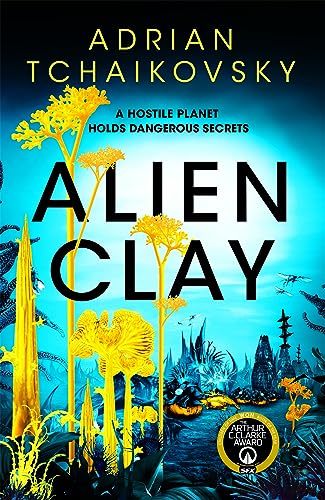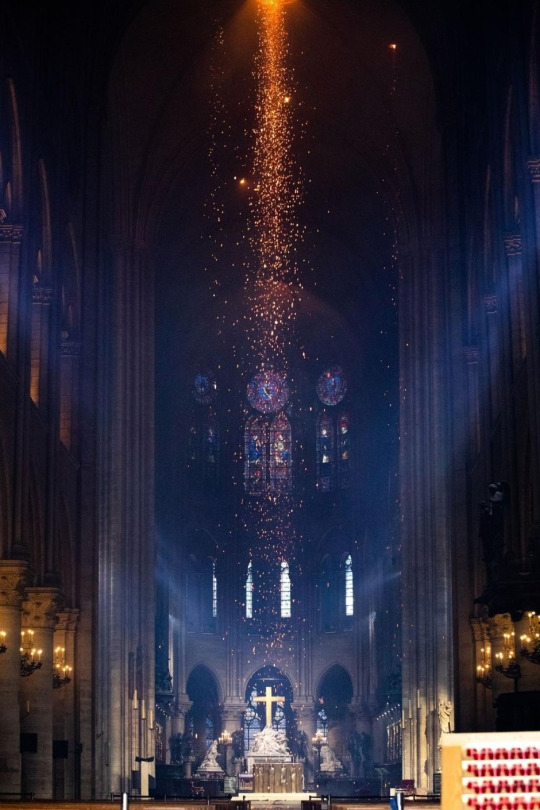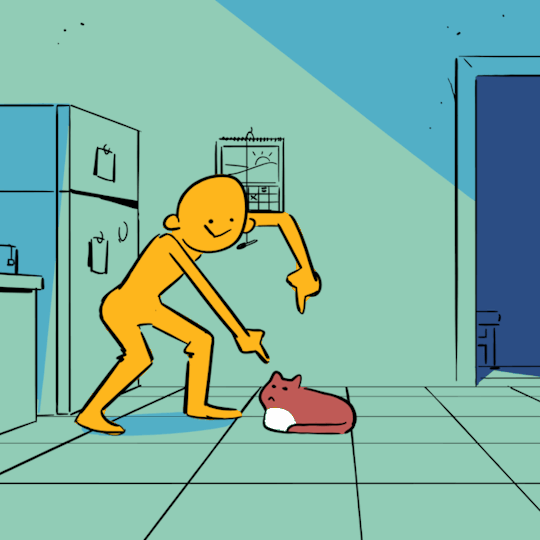although admittedly that doesnt sound likely, my drawing mojo is Gone (icon by moon_gu)
Don't wanna be here? Send us removal request.
Text
2024 Book Review #72 – Alien Clay by Adrian Tchaikovsky

Tchaikovsky is not exactly one of my favourite working authors, but at this point he’s probably quite close. Certainly I haven’t yet regretted giving anything new of his I could get my hands on a try – and this is no exception (even if it’s not really that new, given I waited for my library system to get a copy). It doesn’t completely succeed at everything it goes for, but privileging themes over speculative xeno-biology is really a pretty fair choice, and as narratives go it was both fun and compelling.
The story follows Anton Daghdev – dissident, academic, and dissident academic who, for crimes against the Mandate of Humanity, has been sentenced to transportation to an extrasolar penal colony and a lifetime of hard labour furthering the Mandate’s understanding of the alien ecosystem which has flourished there. It’s a life sentence, make no mistake – but the fecund, symbiosis-obsessed ecology of ‘Kiln’ is far beyond anything he imagined when he was put into cryosleep for the 30 year voyage , and that’s before he is introduced to the real prize: Ruins. Real, artificial structures, with ornamentation, power generation, and writing – all signs of an intelligent creator which has entirely vanished from the ecosystem. Anton is caught between a camp that is itself is a horror show, ruled throgh brutality and fear by a commandant who devotion to the Mandate’s doctrines makes any actual understanding of Kiln impossible, and the ever-growing ecosystem beyond the compound’s walls that is forever seeking the right combination of proteins and molecules to form a bridge between species and worlds, ten thousand species of parasites and symbiotes forever seeking promising new hosts.
The book is concerned with several things, but the most obvious and the aesthetically dominant is the whole trope of the ‘death world’ – specifically the verdant and overgrowing jungle variety, where everything is green and beautiful and constantly looking for a way to kill you. A trope that’s always been more-or-less obviously inspired by 19th century European explorers and colonizers experience in the Amazon and Congo, and 20th century Americans in South East Asia – and the book is very interested in the colonial imagery, here. Everyone’s utter horror at the idea of contamination by the environment and its use as threat and punishment to keep the labourers in line is a central organizing principle of camp life. The fact that that the efforts to understand the nature of kilnish life and intelligence has been futile from the word go because of doctrines and assumptions the human scientists are labouring under and their studies has only ever been destructive and useless stamp-collecting is also just a theme running through the whole book.
From a slightly different perspective, this would be a fairly classic sci fi horror story, honestly – a moral atrocity of a scientific mission, destroyed in a fit of destructive karma as its prisoner/slave labour is infected and comes to know the alien life surrounding them in a way no human science could ever hope to. Very gothic, very Lovecraft. The lead archaeologist even gives a more-or-less sympathetic protagonist to tell it through.
As it is, on the level of genre this is basically an anti-cosmic horror story. The alien really is Alien, the world is vast and strange and you can’t really know anyone or anything – which is the trap. It’s not the alien infection that drives you mad, it’s the isolation and solitude of having felt the connection and ability to truly communicate without lies or deception it offers and then losing it beneath airlocks and thick plastic walls. It’s only be true trust and embrace of the most shockingly alien life ever seen – let alone any other humans – that the species can actually be liberated.
It rather reminds me of Last Exit by Max Gladstone that way – basically entirely different genres, but in both manage to make the alien seem truly terrifying and uncanny, and in both cases it’s the obsession with remaining pure and human and trying a sharp border between Us and Them that’s the real source of horror.
The thematic counterpoint here is the Mandate. It’s a totalitarian state in a very old-school, 20th century modernist way. Government through police spies and regular purges, legitimized by a grand historical project which is mostly just keeping everything neat and legible for the benefit of the top of the pyramid. It’s not that there aren’t true believers to the cause of Scientific Philanthropy, but it really doesn’t need that many of them. It rules through self-interest and fear – the tiny impossible hope of actually changing anything, or the absolute certainty of being sold out and swept up by the time your conspiracy has enough people in it to actually change anything. The Mandate makes it impossible to trust or rely upon anyone else, and by atomizing humanity makes it possible to bind them more tightly to the ruling state than ever before. It’s only be really radical – inhuman, really – levels of trust and cooperation and openness among people trying to resist that it can be fought, with its snitches and its tear gas and its automatic weaponry.
So yes, not the most subtle book in the world. But it definitely worked for me, on balance. It’s surprisingly rare to have a protagonist whose a committed political revolutionary on page 1 and never stops being one in damn near any story I come across, so maybe I just enjoyed the rare treat.
Though it does suffer some in the third act. An opinion I increasingly think I have about everything, but still. Kilnish xenobiology and -ecology is for the first two acts o the book is both aesthetically amazing and actually plausibly alien-seeming, but as Anton really understands it does become a bit credulity-stretchingly benevolent and purely symbiotic (not to mention structurally stable and only changing in the particulars across aeons), a few offhand lines about ‘red in two and claw’ aside. The narration also really doth protest too much about how the connection between the Kiln-infected humans totally isn’t telepathy. It wasn’t really a long book (certainly not by genre standards) but the whole final act also did just feel a bit bloated and meandering.
All of which is really just me being incapable of enjoying something without complaining though. If you like old-school feeling sci fi about alien worlds, Big Themes and improbably physically fit scientists, would recommend.
66 notes
·
View notes
Photo

Le Figaro have a newly published photograph from inside Notre Dame shortly before the roof collapsed, as molten lead fell into the nave. (+)
149K notes
·
View notes
Text
if you're cringing at the genre conventions of the genre you are writing in then why the hell are you writing in it. either have something substantial to say about those conventions or shut the hell up! i will not cringe alongside you at superhero powers and spaceship battles and big eldritch worms and bone magic. i came to this story to SEE that shit and I don't appreciate it when an author tries to pretend they're above the very things they're selling themselves on
26K notes
·
View notes
Text
Yeah I'm AFAB, but what's much more important to understanding my Gender is that I was Assigned Older Sister At My Sibling's Birth
3K notes
·
View notes
Note
Decapitated hydra head that was chopped off from a hydra boss, sprouted a tiny chibi body of its own, and officially joins the party as a member, finally glad to be free from "that horde of insufferable morons"
641 notes
·
View notes
Text
3K notes
·
View notes
Text
bro not to start again on names but u ever think abt how some names have been used for centuries, millenniums even…like how many times has the earth heard a mother calling, ‘alexander!’…how many times have the stars caught a lover whispering, ‘freyja’…how many times has the ground we’ve walked on and continue to walk on felt vibrations of a friend excitedly yelling, ‘mary!’
71K notes
·
View notes
Text
Fantasy books stop having arctic kingdoms of all blond hair blue eyed white people.
7K notes
·
View notes
Text

someone with a major in literature and/or poetry tell me what's so poetic about this that it captivated me because i have no idea honestly
11K notes
·
View notes
Text
For 200 years, scientists have failed to grow a common mineral in the laboratory under the conditions believed to have formed it naturally. Now, a team of researchers from the University of Michigan and Hokkaido University in Sapporo, Japan have finally succeeded, thanks to a new theory developed from atomic simulations. Their success resolves a long-standing geology mystery called the "Dolomite Problem." Dolomite—a key mineral in the Dolomite mountains in Italy, Niagara Falls, the White Cliffs of Dover and Utah's Hoodoos—is very abundant in rocks older than 100 million years, but nearly absent in younger formations. "If we understand how dolomite grows in nature, we might learn new strategies to promote the crystal growth of modern technological materials," said Wenhao Sun, the Dow Early Career Professor of Materials Science and Engineering at U-M and the corresponding author of the paper published today in Science. The secret to finally growing dolomite in the lab was removing defects in the mineral structure as it grows. When minerals form in water, atoms usually deposit neatly onto an edge of the growing crystal surface. However, the growth edge of dolomite consists of alternating rows of calcium and magnesium.
Continue Reading.
1K notes
·
View notes
Text
That cool bee book I was talking about a while ago mostly refrains from philosophical digressions (which I think is a strength, I appreciated how the author had total confidence that just clearly presenting the facts about his subject would be enough to make a fascinating book without the need for any "...and here's why that should blow your mind" editorializing, and he's totally right), but there was one towards the end I've found myself thinking about a lot, which is: he wants people to stop using "self-consciousness" (i.e. the concept exemplified by the mirror test but used implicitly or explicitly in tons of other contexts) as a criterion for which animals can be considered sentient/morally relevant/having significant inner lives/however you want to describe it. Not, as you might expect, because he thinks it's an unreasonably high bar to meet, but because it's such a low bar that it produces no distinctions: he argues that basically any animal with any kind of developed central nervous system has to have some kind of self-consciousness almost by definition.
The example I remember best is: imagine you can see an object in your visual field getting closer to you. No matter the specifics, it's obviously always going to make a huge difference to how you evaluate this situation whether the cause of the object getting closer is a] the object is moving towards you, or b] you are moving towards the object. If a, then something might be pursuing you or falling on you or a thousand other things that are just not even worth considering in the case of b. But visually the two cases are indistinguishable; if you're going to be able to track the difference, your brain has to be putting at least some work into keeping tabs on what your own intentions are and what choices you're making as you move through the world, predicting the expected consequences of those choices, and maintaining a fairly tidy mental separation between stuff in the world that you're making happen and stuff in the world that's just happening of its own volition. Otherwise, every time you walk towards a rock you'll freak out and think the rock is rolling into you, or vice versa.
And it's not hard to see how this applies to your entire sensory world right, it applies to sounds and tactile sensations and even feelings internal to your body to some extent, if you're going to both perceive the world and take actions in the world then it's mandatory to mentally separate yourself and the world before that's going to yield even an ounce of helpful information, you just can't function successfully on the most basic level if you're processing stuff that you're doing on the same level as stuff that's happening, if you're in that state then you simply don't have a usable model of the world at all, you just have chaos.
So you can very easily eliminate a certain seductive narrative about the evolution of consciousness, which starts with very primitive animals who are mentally processing nothing but basic sensory inputs, then as you rise up the chain more complex animals are forming concepts of objects and building up a more nuanced understanding of the world, until finally you approach humans and the mind becomes so subtle and sophisticated that it gains access to this special advanced meta-level of thought where it can even understand itself! No, the self is precisely the one idea that has to be in place from the very beginning, before any of it has even the most rudimentary practical value. Self-consciousness isn't the pinnacle of the mind's evolution, it's one of the lowest, most basic foundations that everything else builds off of.
I think this is really cool stuff! I don't know enough about the relevant academic philosophy of mind debates to say how far all this does or doesn't speak to that, maybe someone will tell me the "self-consciousness" concept being attacked here is a strawman somehow, I don't know. But it's definitely impacted the way I (just a dumb guy who likes creatures) think about our small small cousins and what their lives might be like and I think it's super interesting. If you think it's interesting too then maybe you wanna buy The Mind of a Bee by Lars Chittka and read it. It's mostly not about this stuff, as I say it's light on philosophy and heavy on bee-life immersion, but if you actually read this whole post then you're probably in the market for that I feel like.
1K notes
·
View notes
Text
things i’ll not call you a whore for:
sexual activity
how you dress
things i’ll call you a whore for:
stealing my food
stealing my lemons
my cat likes you more than me
173K notes
·
View notes
Text
A truly painstaking job for a gift of love...
3K notes
·
View notes
Text
Paris Hilton came out with a kitchen line for walmart and it’s everything I wanted my kitchen to be as a kid

16K notes
·
View notes

